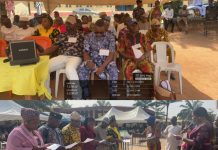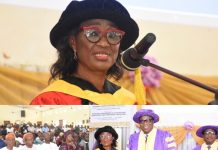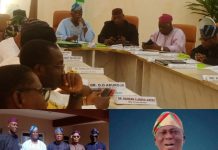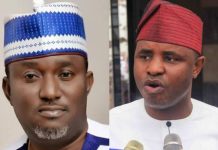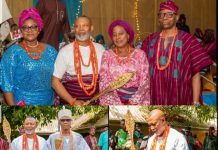
From the East to the West, through to the North and South, a unifying call by all and sundry is ‘change’ or ‘transformation’, as posited by the two main political parties during the 2015 general election. While the victorious All Progressive Congress (APC) had the change mantra, Transformation Agenda was the plan of then ruling People’s Democratic Party (PDP), even though both words are synonymous.
The cry for change in virtually all spheres of the country continued to get louder but realistically, such cannot be achieved except and only the right set of people, in terms of ability and capability are put into positions, especially political positions. From the federal to the state, through to the local government, once the wrong set of people are occupying the seats, the change or transformation everyone dreams of will only remain in the dreamland.
“Charity begins at home” is a saying everyone grew up knowing, but truth be told, the charity in Nigeria most people focus on learning it from outside, thereby leaving the homes unguided. In the various levels of government, the most important is the Local Government. The word ‘local’ obviously shows how closer it is to one than any other level. Known as the grassroots government, its primary aim is to take governance and governing processes to the doors of the people at the grassroots, to benefit from the dividend of the democratic practices.
As undisputably important as this level is, it gets little or no attention from the people, even those at the grassroots it seeks to serve. The focus of the people is predominantly on the federal and a bit on the state. Whereas, reverse should be the case, as the local government should be the spotlight.
Visits to the about 774 local government areas in the country and some states having local council development areas such as Lagos, the state of infrastructure, security et al is devastating as just a few utilise the abundant resources it has and make manifest the products of its efforts. Is to say abundant resources not off? It might have been the case but definitely not now. If the Buhari-led administration will not be remembered and applauded for anything, surely not with the financial autonomy it granted to the local governments in the country and the monthly allocation they get.
According to the Federation Accounts Allocation Committee (FAAC), Local Government Councils in Nigeria received a total of N132.193 billion for the month of March, N57.519 billion for April, N143.742 billion and N161.100 billion for months of May and June respectively, and N161.10 billion in July, all in 2021.
Even with these numerous funds directly paid to the local governments, unlike when it was done through the states, no one in interested in them. Little wonder why just a few, mostly party members, participate in the LGA elections in states. The individuals that desired the change and transformation are resting in the comfort of their homes, watching the television or sleeping. The party members decide who rules.
Another key participants at the local government elections are the ‘hoodlums’. During these said elections, the hoodlums are attached to their various parties and go round polling units to cast their votes and decide who rules over the elites, and, of course, them for the next four years.
Results and observation of the recently concluded local government elections in states like Lagos and Ogun, there is no other conclusion than to say the system of government practised at the local government level is ‘HOODLUMocrcay’ – a government of the hoodlums, by the hoodlums, but unfortunately for all, including the so called elites and educated.
Polling units known for high figures during national and state elections, were struggling to have two figures, which were mostly in the lower tens, and some even had single figures. The hoodlums took advantage of the low turnout and voted for their candidates, whom, undoubtedly, paid more.
The effects of this cannot be far fetched, as mostly the external and internal areas around the local government secretariats, except the designated offices, are filled with hoodlums. Who knows if one day they will claim ownership of the seats?.
The calibre of people occupying the seats is another discussion, but what is essential is that as much as every citizen pays attention on the federal and state governments and their activities, same and even more should be paid to the local governments. If the local governments in the country are up and doing, taking the dividends of democracy to the citizens’ doorstep, what do you think will be left in governance?.
Waheed Shotonwa is a journalist and can be reached via shotonwa.waheed@gmail.com
PS: The views, thoughts, and opinions expressed in the text belong solely to the author, and not necessarily that of the Publishers of The Precision NG.




